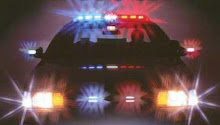If you've received a Seattle traffic infraction, whether speeding, running a red light, running a stop sign, failing to yield, HOV violations, school zone violations, or any of the other myriad of traffic infractions and told anyone, you've probably heard a story about someone that got their traffic infraction dismissed by a
Seattle traffic lawyer. And you may have even heard numerous stories of dismissed traffic infractions. There is a reason for this - Seattle traffic tickets can be beaten in many circumstances.
But, you can't win if you don't contest the hearing. And you can't contest the hearing unless you check the third little box on the back of your traffic infraction. Once you do that you'll get a hearing date and you can go in there and try to beat your Seattle traffic ticket.
"What happens when you get in there?," you ask. Good question. It is helpful to know what is going to happen at your contested hearing before you actually go in there, huh? And the good news is, there are rules governing the procedure of Seattle contested hearings. They are located in
IRLJ 3.3, which is the book of rules for traffic infractions (IRLJ stands for Infraction rules of limited jurisdiction, roughly).
If you go there you will see there are five basic rules: (1) general rules; (2) representation by Seattle traffic lawyer; (3) rules of evidence; (4) factual determination; and (5) disposition.
To sum these rules up very quickly (that's why the
Traffic Attorney Seattle Blog is here), when you get to court you are entitled to a hearing on your contested ticket. You may have a Seattle traffic lawyer represent you, but one won't be appointed to you because you are not facing any jail time. This means your Constitutional right to an attorney does not kick in and you have to foot the bill no matter what.
Third, the rules of evidence apply, so you have to enter evidence into the record, make your objections known, and things of that nature. Fourth, the judge will make a factual determination as to whether the prosecution met its burden of proving the infraction occurred by a preponderance of the evidence (more than 50% roughly). And, finally, if he finds the prosecution did meet its burden, it will impose a fine on you (which you can ask to have reduced), and if the court finds you win, the case will be dismissed.
That all sounds, great, but what will really happen at the hearing? Here is the inside scoop from a Seattle traffic lawyer. Although, you must remember that every court is different, so some things might not be precise.
When you get to court go check in with the clerk to let them know you are present. That will get you on the list. After that you wait for the judge to come in. Sometimes its a long wait, sometimes its a short wait. No matter what, there will almost always be a wait.
When the judge does come in he may provide a short introduction of himself, give a broad overview of the proceedings, and take a roll. If you are there, make sure you speak up. After this sometimes the judge will ask if anyone wants to do a deferred ticket and he'll take those first, sometimes he won't. It just depends on the court that you are in. Oh, and some courts don't even have a prosecutor. The judge runs the entire court on his own. That make for a pretty interesting time when questioning witnesses.
Once your case is called you will go up and sit at one of the tables. The judge will ask if there are any procedural motions (any reason why your Seattle traffic ticket case should be dismissed because of procedural errors) or any substantive motions that get rid of the case. After he decides those he'll hear the evidence. If you subpoenaed the officer you'll get a chance to question the officer and the officer will get a chance to speak. After that you get a chance to speak. If you don't subpoena the officer, the court will review the ticket to see if sufficient evidence exists to find you committed the infraction.
If you couldn't tell, during the entire process it helps to have a Seattle traffic lawyer on your side. First, we know the procedural rules and substantive rules that can get your case dismissed. Second, we know how to question officers to get the information we need to determine if he acted properly. And third, we know how to address the court in a way that is persuasive to the court. In short, Seattle traffic lawyers give you the best chance of beating your Seattle speeding ticket.
If you are cited for speeding in Seattle, you have made the right decision by contesting your Seattle traffic ticket. If you think you know what you are doing, good luck. There is a lot of information here that should be helpful. If you find that you don't know what you are doing or don't want to waste the time it takes to learn, then give a Seattle DUI lawyer a call. We can help.
Related Posts:
Seattle Traffic Lawyer | Beating Traffic Tickets
Seattle Traffic Lawyer | False Imprisonment

